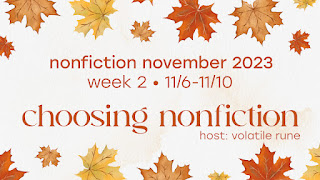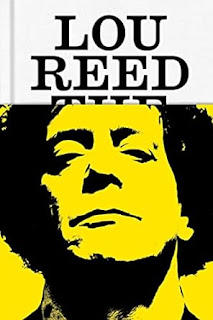"A hustle here and a hustle there/New York City is the place where..."
Lewis Allan Reed was born in Brooklyn in 1942, but mostly grew up further out on Long Island. He went on to, you know, make a bunch of records.
And take a lot of drugs.
Will Hermes' biography Lou Reed: The King of New York was released at the beginning of last month.
Reed grew up in a practicing Jewish family; his father was a successful accountant. His mother stayed at home; he had a sister five years younger. He cut his first record, a single ("So Blue/Leave Her for Me") in high school, at age sixteen, with a band called the Jades. It had some local success, got played on Murray the K's radio show, but quickly faded. But not a bad beginning.
He may have had a troubled childhood--he often said so himself, though little that Lou Reed says about his life can be trusted: he told the musician Lenny Kaye once, "I created Lou Reed. I have nothing even faintly in common with that guy, but I can play him pretty well." His sister said that while Lou was a bit fragile as a child, theirs was a quite normal household.
In any case something went a bit off the rails. He wanted to be in Manhattan for college, but at the end of his first semester at NYU, he had a nervous breakdown, or something, and moved back with his parents, where he underwent a course of electroconvulsive therapy. Was it anxiety, depression? Or was it--as Reed sometimes said--his homosexual impulses? (Though his sister says that was not the cause for his ECT.) Though it seems astonishing now, ECT was considered an ordinary enough treatment at the time. After those horrors, he started college again at Syracuse in upstate New York.
There he met
Delmore Schwartz, once a poetic
enfant terrible, but by then a drunk, and mostly just terrible. Still he was impressive to the young Lou Reed, who was interested in doo wop, R&B, rock, and popular music in general, but also in literature and poetry. Schwartz became the first of Reed's great mentors.
After Reed graduated from college, he worked as a songwriter for Pickwick Records in NYC, a sort of Brill Building outfit, where his biggest success was a dance track 'The Ostrich'. He also met the avant-garde violist John Cale. The two of them became the core of the Velvet Underground; the classic lineup was completed with Sterling Morrison on guitar and Maureen ('Moe') Tucker on drums. The band caught the eye of Andy Warhol, who was--ahem!--a famous enough guy, though maybe not the best music promoter. In any case Warhol goes on to become the second of Reed's great mentors. In the late 60s, the Velvet Underground made some great records, famous now, but they hardly sold at the time.
The commercial breakthrough, Transformer, with 'Walk on the Wild Side', came out in 1972, his second solo album.
Did I mention drugs? Reed was probably already injecting in high school. Somewhere early on he caught hepatitis from shared needles. Heroin was an early favorite, one he shared with John Cale, and the topic of several early VU songs. Later he did mostly amphetamines. This was partly the influence of Warhol, who famously emphasized work ethic and did speed to keep going. There were various reasons why Reed and Cale couldn't get along--Reed's ferocious difficulty as a person being the main one--and that version of the VU ended in 1968. But Cale also suggests that while he was still doing heroin, Reed was then on speed. A cultural difference.
Reed also seemed to be genuinely bisexual. He had long term relationships with both men and women. He may have slept with Warhol--some say yes and some say no--though Hermes thinks not on the whole. Reed's longest homosexual relationship was with the trans woman Rachel Humphries, and went for about 5 years in the late 70s. It fell apart when Reed decided he finally had to get clean of drugs. (He meant also to get free of alcohol, but doesn't seem to have ever succeeded entirely with that.)
Hermes' book speeds up after the 70s. His previous book was about NYC music in the 70s, so that's his main period of interest. But it's also the case that established success in an artist can be a little dull in a biography, so he may have chosen to spend less time on that. His second marriage--to Sylvia Morales Reed--helped him sober up and was the inspiration for a number of his 80s solo albums (the period I was hearing him). But it broke up when she wanted a kid and he didn't. He later married the avant-garde musician Laurie Anderson, who survived him.
There's enough testimony that Lou Reed could be sweet and caring that it's probably even true, but it certainly wasn't always, and he could be terribly difficult. Insecurity? Amphetamines? Alcohol? Perfectionism? Rockstar entitlement? Who knows? Something could make him turn nasty. Reed between the hepatitis, the drugs, and the alcohol did enough damage to his liver he needed a transplant, which he got in 2013. It seemed to have worked for a couple of months, but then his body rejected it, and he was dead in October of that year. Hermes quotes a hilarious
bit from the Onion that was true even when it appeared in the optimistic months, but then sadly was even more true:
New Liver Complains of Difficulty Working with Lou Reed
"It's really hard to get along with Lou--one minute he's your best friend and the next he's outright abusive,' said the vital organ, describing his collaboration with the former Velvet Underground frontman as "strained at best." "He just has this way of making you feel completely inadequate."
Anyway, Hermes' biography was solid, better on some periods than others (of course,) best of all on the late sixties through the seventies. I don't know that it will make any new converts, but if you were already a fan...
...I think you'll enjoy it.

It's the second week of Nonfiction November and the prompt is, How do I choose which non-fiction to read? I'd say it's generally by topic, as was this. I don't remember where I first saw mention of the biography, but since that review wasn't a pan, and I knew was interested in the subject, I put it on my library holdlist. I've read a few other music biographies, though it's not a large category for me. General-audience literary criticism is a perennial for me, history--a lot of Ukraine and eastern Europe lately, alas--regularly appears by my reading chair, some (non-technical) philosophy. Some books related to professional concerns: computers, finance, containerized shipping. Cookbooks.
I also then to fix on particular authors. I read Robert Gerwarth's most recent, November 1918, because I'd enjoyed his earlier book. I'm likely to read the new Christopher Clark soon. I might also read that earlier Will Hermes. And the next non-fiction book I'll read will score in two categories: it's the latest by Rebecca Solnit, whom I quite like, and it's about her engagement with George Orwell, so literary criticism.
Project Gutenberg also has some interesting things, and I sometimes just read from there, mostly because it's so simple to come by, and I want something for the eReader.
I'm not completely opposed to judging a book by its cover 😉 though I certainly wouldn't call the cover of this Lou Reed biography much of an enticement...but it *has* gotten harder to browse bookstores: it's a pretty good ways now for me to get to a good new bookstore, when ten years ago there was one a block away. (I should be buying fewer books anyway...) In any case more books in general, and non-fiction in particular, is likely to come from the library where I just order it up from the website and it appears at my local branch magically, after I've just read about it at somebody's blog. I'm expecting to request a whole bunch of books at the end of this month...
Thanks to Frances at Volatile Rune for hosting this week!



Its Frances from Volatile Rune. Lou Reed sounds quite a character! I do wish people wouldn't invent difficult childhoods just to be fashionable though, unless they actually had one! Thank you so much for taking part in nonfiction November.
ReplyDeleteIt's a weird way to try to achieve Authenticity, isn't it?
DeleteI love how books just magically show up at my library with my name on them! ;-)
ReplyDeleteI'm 8694 rather than Reese at the library, but that works, too!
DeleteProbably not the biography for me, but it does sound like an interesting take on Reed's life.
ReplyDeleteI think you'd have to be a Lou Reed fan to be interested.
DeleteLou Reed? ..not for me. Why are people so self-destructive? Other reading tips about some of your favortie NF authors much appreciated. My Dutch library does not have ALL I'd like to read but I keep searching. Project Gutenberg, now I never thought to use it more actively. I'll see what I can find. I started the C. Clark book...excellent! Thanks for your week 2 #NonFicNov thoughts.
ReplyDelete= Nancy Elin
DeleteI always liked his music. I knew his life was problematic so that's what I expected from the book, I guess, but I don't really understand it either--people can be so bad to themselves, let alone others.
Delete